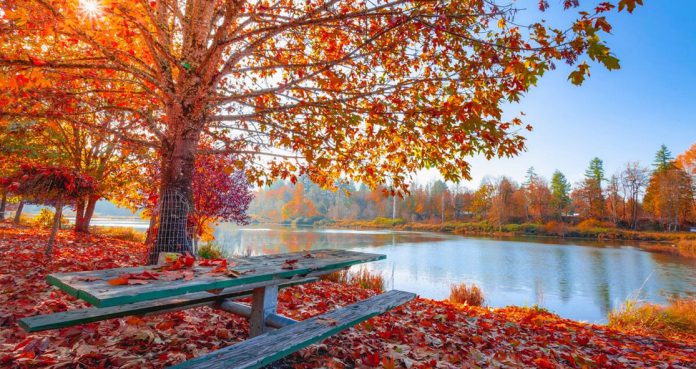The gloomy days of summers are gone and yesterday we have already entered our second autumnal equinox of 2019, paving a road to hectic schedules occupied with work, school, and other responsibilities.
On Monday, we entered our second autumnal equinox of 2019. Also called fall equinox or September equinox, autumnal equinox means the fall season begins in the Northern Hemisphere and the spring season begins in the Southern Hemisphere.
People who reside right along the equator, such as Alaska, have to face 12 hours of days and 12 hours of nights, which is why they do not notice a difference.
The term “equinox” is derived from the Latin word “aequus” meaning equal and “nox” meaning night, so equinox meaning “equality between day and night.”
The autumnal equinox ends with the winter solstice, wherein the sun rises later and night comes sooner. This year’s winter solstice begins on December 21, when the days will be longer and nights will be shorter.
This year’s fall foliage schedule is likely to be delayed by a few weeks across the country because temperatures are expected to remain above average for a few weeks to come, according to The Weather Channel. Please note that fall foliage is not due to current weather changes. In fall foliage, leaves tend to change color due to daylight and photosynthesis.
Fall Season Health Tips
The transition from summer to the shorter days of fall can be a real deal. Here are a few tips that could help you to overcome such challenges and help ease the transition.
- Strengthen your immune system
Look for foods that are rich in antioxidants with high nutritious value, which will boost your immune system, combating infections and allergies. Include green leafy vegetables, fruits, nuts and seeds in your diet. Drink plenty of water and do not forget to wash your hands often to stay away from sickness.
- Exercise
You may feel a bit a lazy this autumn and it is easy to just sit around and do nothing all the time. However, it is important to keep your body moving. Make sure you keep yourself physically active in order to stay away from illnesses related to the fall season in the USA.
- Take Vitamin D Supplement
We often get our vitamin D from getting exposed to the sun in the summers, which is greatly affected when the weather is cold and when we spend more time indoors during the autumns. You can use a vitamin D supplement that can boost your immune system if you find that you are not getting enough of it during this fall season.
- Check with your PCP
If you think you are unwell and feel drowsy or sick, please check without your PCP without any further delay. Pollen allergy during the fall season in the USA is common, which is characterized by the symptoms of sneezing, a runny or stuffy nose, red or itchy eyes, and mild fever.




















